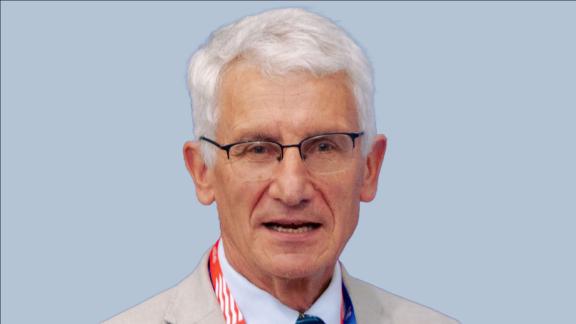Going global – the benefits of international partnerships

As the NHS has to do increasingly more with less, we must turn to ever-more innovative approaches to achieve this. And some innovation is coming from unlikely quarters, writes Chris Born of Healthcare UK.
I spent 25 years of my career working in the NHS, most recently as a primary care trust chief executive (remember those?) and then managing director of NHS Global before joining Healthcare UK in the Department for Business and Trade. In that time I have worked across numerous healthcare systems and what always stands out is that, internationally, the NHS remains one of the most admired and desirable systems to work with, delivering many of the most exciting innovations and effective healthcare services in the world. So respected is the NHS model, it is the basis of health systems from South America to the Asian Pacific.
This reputation opens the door to all manner of opportunities for the NHS to partner with healthcare systems globally.
Global opportunities
As governments look to invest, opportunities can range from providing NHS expertise on a commercial basis and generating much-needed additional sources of income to invest into NHS frontline services, through to joint research and innovation programmes that can also generate additional income and lead to service improvement back home. Opportunities are not just financial either, with international partnerships offering opportunities to enhance the professional development of our clinical and managerial colleagues in ways impossible to replicate in the NHS alone.
At the highest end, trusts have secured multi-million-pound contracts to be the quality and governance partner to major hospitals
Working internationally is, for some trusts, an important adjunct to their other income-generating activities such as private patient units, lab and pharmacy services and other joint ventures that were promoted in the NHS Long Term Plan.
At the highest end, trusts have secured multi-million-pound contracts to be the quality and governance partner to major hospitals. King’s College Hospital is working in Jeddah, Dubai and Abuja, Maudsley Health in UAE, and Imperial Healthcare has begun working with Aman Hospital in Qatar. Others have long-term partnerships to support the development of services, such as Guy’s and St Thomas’ and Cumbria Northumberland Tyne and Wear in India.
Government support
If this sounds daunting, know that the NHS is not alone in undertaking this work. The government provides practical support to help the NHS engage internationally. NHS England and DHSC co-fund Healthcare UK with the Department for Business and Trade and we are providing tailored support for NHS organisations in developing their international strategy, working with trade advisers across British embassies and high commissions to find opportunities and facilitate global projects for NHS and private UK suppliers.
In the last year, Healthcare UK took overseas missions to ten countries, accompanying 18 NHS trusts
In the last year, Healthcare UK took overseas missions to ten countries, accompanying 18 NHS trusts to international trade shows and events. We welcomed delegates to the UK from a dozen countries and arranged recent delegations to South East and South Asia, the Middle East and the US. We were pleased to join the NHS Confederation at the International Hospital Federation World Congress in Lisbon.
Help to address the challenges
Despite the benefits available and the support provided, making the most of international engagement is not an easy task. Success is by no means linear. It takes critical time and commitment from the organisation and requires challenges to be consistently overcome. Practically, this combination can serve to keep NHS organisations out of the international space, and at HealthcareUK we want to understand more about why this is.
We are working with the NHS Confederation to learn more about the barriers trusts face so we can tailor our support to help. Whether it is a lack of existing commercial expertise or finding the available staff time; if it is developing an international strategy or gaining the buy in of the board, senior management and clinical teams, we want to understand more.
At present, we are using an export readiness tool to assess trusts’ capacity to undertake international work, providing dedicated support through an export catalyst learning programme to develop trusts’ skills and, in some instances, are sending staff to work alongside teams in trusts.
However, by learning more about what you need to help you export your skills, we can tailor our support to better reflect your needs.
Chris Born is NHS innovation and clinical services specialist at Healthcare UK. You can follow Chris on X (formerly Twitter) @chrisborn1
To find out more about opportunities for working internationally, or to share any barriers you have faced in doing so, email healthcare.uk@businessandtrade.gov.uk



